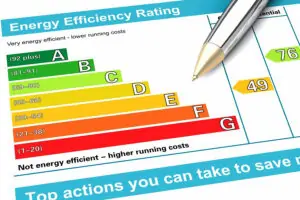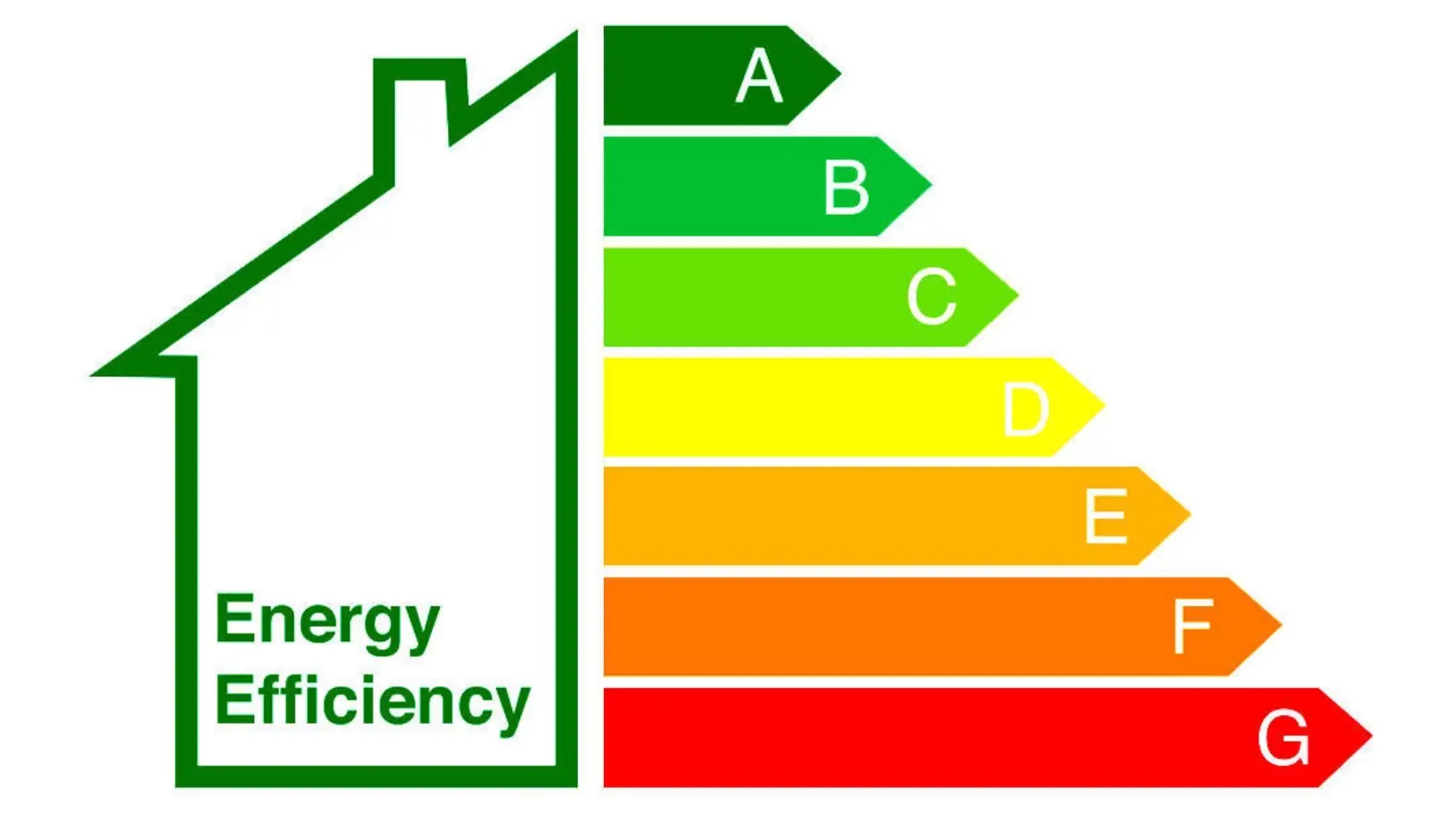Energy Performance Certificates (EPCs) have become an essential part of commercial property transactions in the UK.
These certificates assess the energy efficiency of a building and provide valuable insights for businesses looking to reduce their environmental impact and operating costs.
Understanding EPC Ratings:
Commercial EPCs use a letter grade system, ranging from A (most efficient) to G (least efficient), to indicate a building’s energy performance. The certificate also includes recommendations for cost-effective improvements that can enhance a building’s energy rating.
Current UK Law on Commercial EPCs:
As of April 1st, 2023, the following regulations apply to commercial EPCs in the UK:
- Mandatory EPC Rating: All commercial properties rented or sold must have a valid EPC with a minimum rating of E. This applies to new leases, existing tenancies, and building sales.
- Objective: This legislation aims to incentivise landlords to invest in energy-efficient upgrades for their commercial buildings. This can be achieved through upgrades like better insulation, energy-efficient lighting, and modern heating systems.
- Enforcement: Failure to comply with EPC regulations can lead to fines for landlords. The amount can vary depending on the rateable value of the building, ranging from £500 to £5,000.
Rule changes coming into effect
Here’s a breakdown of EPC changes due to MEES regulations in the UK, including the distinction between existing and new tenancies:
Current Situation (April 2023):
- All tenancies (existing and new): Minimum EPC rating of E is required for letting a commercial property. Landlords cannot grant new tenancies or continue existing ones if the EPC falls below E, unless a valid exemption applies.
Upcoming Changes:
- April 2025:
- All tenancies: Landlords of all non-domestic rented buildings must have a valid EPC for their property.
-
- New tenancies: The minimum EPC rating for granting a new tenancy of a commercial property increases to C.
- April 2027:
- All tenancies: The minimum EPC rating for all tenancies (both existing and new) of commercial properties increases to C. Landlords must ensure their properties meet this new rating or register a valid exemption.
Beyond 2027:
- The government aims for all non-domestic rented buildings to achieve an EPC rating of B by April 2030. Specific compliance steps for existing and new tenancies to achieve this are yet to be confirmed.
Exceptions to Mandatory EPCs:
While most commercial properties require an EPC, there are some exemptions:
- Buildings slated for demolition
- Temporary buildings (less than 2 years lifespan)
- Detached buildings under 50sqm (excluding dwellings)
- Places of worship
- Industrial sites, workshops, and agricultural buildings (with minimal energy demand) – NB – The definition of “minimal energy demand” can be complex and may vary depending on specific circumstances)
When is an EPC Required?
An EPC is mandatory in specific situations:
- Construction, Sale, or Rental: An EPC is required whenever a building is constructed, sold, or rented out.
- This applies to the entire building or any designated section that functions separately with its own climate control system.

Building Definition:
For EPC regulations, a building is defined as:
“a roofed construction having walls, for which energy is used to condition the indoor climate, and a reference to a building includes a reference to part of a building which has been designed or altered to be used separately”.
This clarifies that EPCs are not just for entire buildings, but also for designated sections within a larger structure that have their own heating and cooling systems.
What Determines EPC Requirement?
Several factors influence whether a building requires an EPC:
- Presence of Climate Control Systems: The building must have a roof, walls, and use energy for heating, mechanical ventilation, or air conditioning to fall under EPC requirements. Hot water and lighting don’t trigger the need for an EPC.
- Planned Installation: If a building is expected to have these climate control systems installed in the future, an EPC might be based on the assumed fit-out based on building regulations.
- Separate Occupancy: An EPC can be required for a designated part of a building designed or altered for separate use, even within a larger structure. This typically involves separate access and independent control over heating and ventilation systems.
Understanding EPC Types:
The type of EPC provided depends on the specific situation:
- Reflecting Occupancy: The EPC should reflect the part of the building being sold or rented.
Additional Considerations:
- Buildings can have various tenancy agreements and uses. The specific circumstances should be considered when determining EPC requirements.
- If a building lacks fixed climate control systems but has the potential for future installation, the EPC might be based on the building’s use class and typical energy-intensive fit-out practices.
By understanding EPC regulations and the factors influencing their requirement, businesses and property owners in the UK can ensure compliance and contribute to a more sustainable future.
